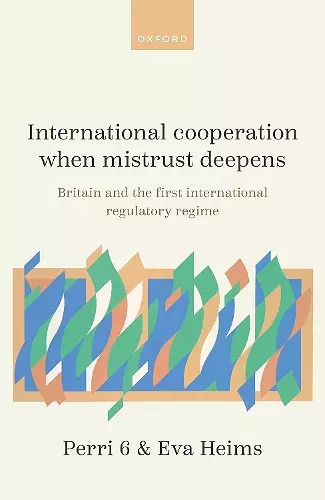International Cooperation When Mistrust Deepens
Britain and the First International Regulatory Regime
Perri 6 author Eva Heims author
Format:Hardback
Publisher:Oxford University Press
Published:13th Feb '25
£99.00
Supplier delay - available to order, but may take longer than usual.

In the years leading up to the outbreak of war in 1914, Britain was collaborating closely with Germany on the development of an improved telegraph service, despite preparations for war also being made by both countries. This cooperation rested upon both states' intensive participation in the global regulatory regime for telecommunications. Why states commit to cooperating in such multilateral regimes with other states while their relationship struggles with deepening mistrust is a longstanding puzzle. As tensions rise among great powers today and international organisations struggle again, this puzzle is as important now as it was when international regulatory regimes first emerged. The book challenges many of the conventional explanations for this puzzling situation and draws on neo-Durkheimian institutional theory to develop a novel explanation. It examines the case of Britain's relationship with the first global regulatory regime, which was concerned with international telegraphy, submarine telegraph cables, and radiotelegraphy from the 1860s through to 1914. The regime was created in a time of European wars and growing imperial conflicts. Although Britain seriously contemplated leaving the International Telegraph Union in 1901-2, the state went on to deepen cooperation with other countries in telegraphy, including with Germany even as preparations for war advanced. Drawing on extensive archival sources, Perri 6 and Eva Heims show that social organisation in government can cultivate institutional buffering between aspects of external policy which can sustain commitment despite deepening conflict. In doing so, they show how a neo-Durkheimian approach provides a powerful explanation for deepening cooperation even as mistrust rises, which has significant implications for understanding state formation.
ISBN: 9780198882428
Dimensions: 240mm x 160mm x 20mm
Weight: 588g
304 pages